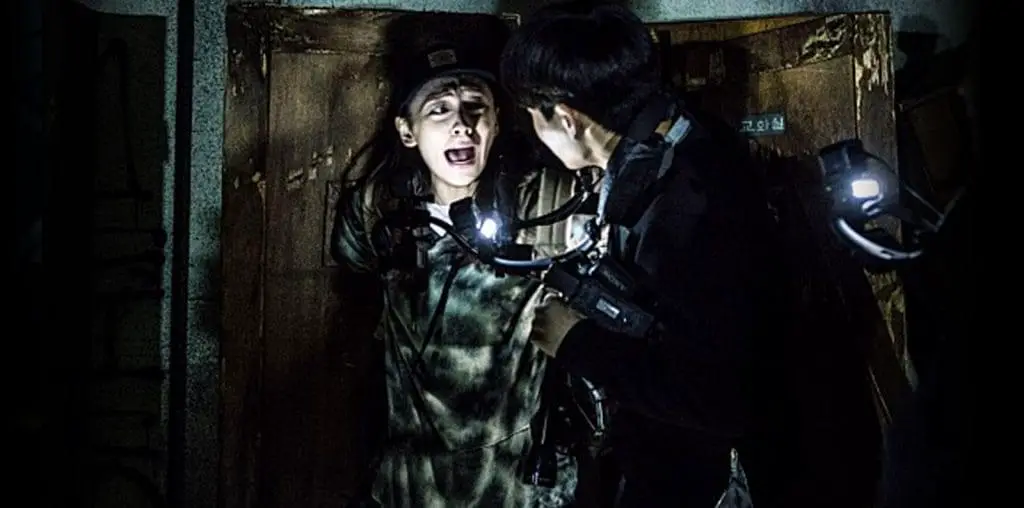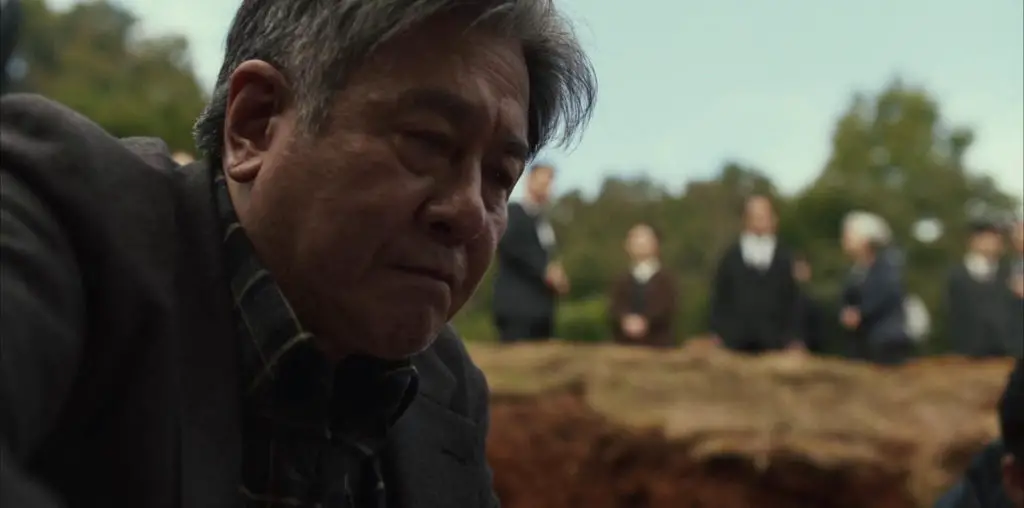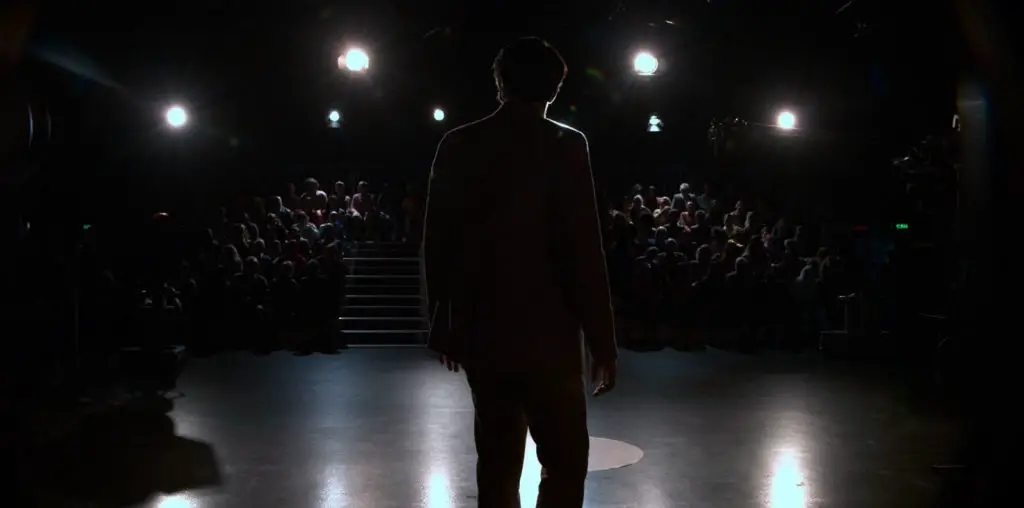
Korea has established itself as an effect in the horror genre with works like Train to Busan and the superb unrated giant creature picture The Host. Devils Stay is another ambitious entry into the realm of supernatural possession thrillers. Originally slated for release in 2021, but delayed due to the pandemic and other unspecified reasons. While Devils Stay offers chilling cinematography, effective performances, and premise, it struggles under the weight of its many themes.
The film revolves around Cha Seung-Do (Park Shin-yang), a cardiac surgeon who believes his daughter So-Mi is possessed. After an exorcism performed by Father Ban (Lee Min-Ki) appears successful, So-Mi suddenly dies—at least, that’s what it seems. The ensuing traditional three-day funeral is plagued by occurrences that lead Seung-Do to believe his daughter is still alive. Dreams, voices, and appearances in corners abound. Father Ban is tormented by the lingering presence of the past of the demon Bariel, which threatens to fully manifest if it is not exorcised once and for all.
Director Hyun Moon-Sub is making his feature debut. The script, by Hyeon Moon-seob, introduces not only possession but also themes of medical ethics, grief, and even a cult of Russian immigrants. While this approach could have resulted in a multifaceted contemporary film, the picture feels overcrowded with undeveloped ideas. Some potentially compelling elements—such as Father Ban’s past possession and Seung-Do’s guilt over his daughter’s heart transplant, which incidentally is from a burn victim
Devils Stay does offer moments of genuine unease. Cinematographer Lee Chang-Jae crafts imagery that enhances the film’s atmosphere, particularly in a levitation sequence that occurs outside in daylight. The film also delivers some effective horror sequences, though it leans on familiar genre tropes, such as spectral visions and insect swarms, without adding much innovation. The decision to substitute flies and locusts with oversized moths is a visual choice applied in John Boorman’s The Exorcist II: The Heretic.
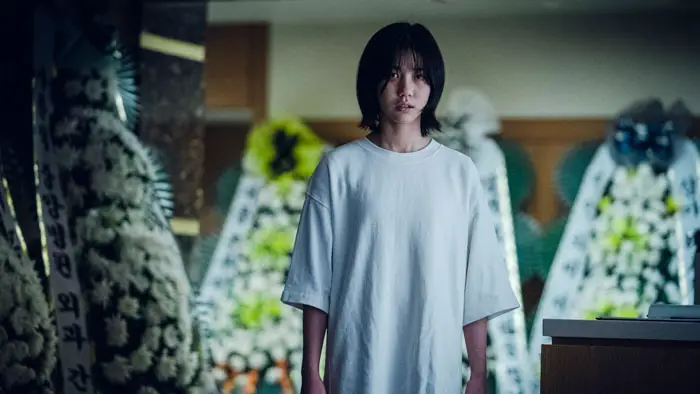
“Father Ban is tormented by the lingering presence of the past of the demon Bariel…”
Many of the film’s elements recall classics of the genre, most notably the eternal or infernal The Exorcist, which remains the gold standard for possession films.
Like William Friedkin’s masterpiece, Devil’s Stay explores faith, doubt, and the terror of demonic influence. However, unlike that film, this one struggles to maintain a singular vision, much like many of the Exorcist sequels. Recently, The Pope’s Exorcist also attempted to revitalize exorcism horror with action-oriented elements, and this follows a similar path, particularly with Father Ban’s unexpected physical prowess. Additionally, the film’s exploration of loss and supernatural presence shares thematic similarities with Last Shadow at First Light, the Japanese horror drama that deftly intertwines grief with the spectral realm.
One of the film’s more perplexing choices is that as tension begins to mount, the narrative is interrupted by unexpected action sequences, such as a bar fight featuring Father Ban. While it’s refreshing to see exorcists portrayed as physically formidable (Father Karras was a boxer), these moments feel out of place within the film’s otherwise sombre and suspenseful tone.
Despite its flaws, Devils Stay isn’t without merit. Park Shin-yang delivers a wonderful performance as a grieving father on the brink of madness. Watch the lovely, tender moment when he opens his now-dead daughter’s rigor mortis hand by kissing it. Lee Min-Ki brings depth to the conflicted exorcist. The examination of loss and religious fervor provides an emotional anchor, even as the plot meanders.
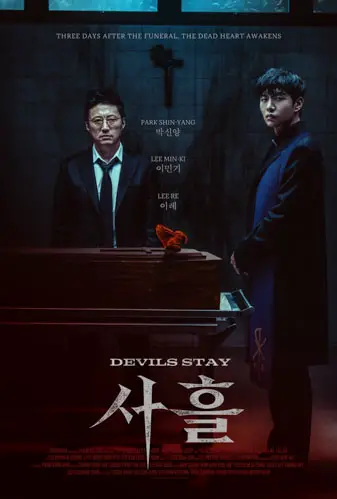
"…the examination of loss and religious fervor provides an emotional anchor..."
